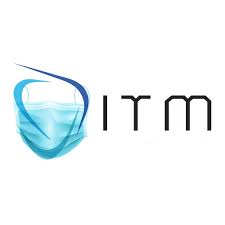
Many of us are pretty in tune with our bodies. For example, you can likely immediately point to that tight spot on your right shoulder that knots up when you’re tense.
Yet, you may like to know a whole lot more about what’s going on inside your body, such as, “What’s the story behind my eggs?”
Are female babies born with eggs?
Yes, female babies are born with all the egg cells they’re ever going to have. No new egg cells are made during your lifetime.
This has long been accepted as fact, however reproductive biologist John Tilly offered research in 2004 that initially purported to show new egg stem cells in mice.
This theory has been generally refuted by the wider scientific community, yet there is a small group of researchers pursuing this work. (A 2020 article in The Scientist describes the debate.)
Egg terminology
An immature egg is called an oocyte. Oocytes rest in follicles (fluid-filled sacs that contain an immature egg) in your ovaries until they begin to mature.
The oocyte grows up to be an ootid and develops into an ovum (plural: ova), or mature egg. Since this isn’t a science course, we’ll mainly stick to the word we’re most familiar with — egg.
How many eggs are female humans born with?
As a foetus early in development, a female has around a whopping 6 million eggs.
The number of these eggs (oocytes, to be precise) is steadily reduced so that when a baby girl is born, she has between 1 and 2 million eggs. (Sources differ slightly, but regardless, we’re talking about a seven-digit figure!)
So why doesn’t the menstrual cycle start at birth?
Good question. The eggs are there, so what’s stopping the menstrual cycle from starting up?
The menstrual cycle is on hold until a girl reaches puberty. Puberty begins when the hypothalamus in the brain starts to produce gonadotropin-releasing hormone (GnRH).
In turn, GnRH stimulates the pituitary gland to produce follicle-stimulating hormone (FSH). FSH initiates egg development and causes oestrogen levels to rise.With all of this going on inside of us, it’s no wonder some of us experience the associated mood swings!
Wondering about the first sign of puberty? Menstruation starts about 2 years after the breast bud — that little bit of tender tissue that develops into a breast — appears. While the average age is 12, others can start as early as 8, and most will start by age 15.
How many eggs does a girl have when she reaches puberty?
When a girl reaches puberty, she has between 300,000 and 400,000 eggs. Hey, what happened to the rest of those eggs? Here’s the answer: Before puberty, more than 10,000 die each month.
How many eggs does a woman lose each month after puberty?
The good news is that the number of eggs that die each month decreases after puberty. After starting her menstrual cycle, a woman loses about 1,000 (immature) eggs every month, according to Dr. Sherman Silber, who authored “Beating Your Biological Clock,” a guide for his infertility clinic patients. That’s about 30 to 35 per day.
Scientists aren’t sure what prompts this to happen, but they know that it isn’t influenced by most things we can control. It’s not influenced by your hormones, birth control pills, pregnancies, nutritional supplements, health, or even your intake of chocolate.
Some exceptions: Smoking accelerates egg loss. Certain chemotherapies and radiation also do. Once follicles mature, they finally become sensitive to the hormones of your monthly menstrual cycle. However, they aren’t all winners. Only a single egg ovulates. (Usually, at least. There are exceptions, which in some cases lead to fraternal twins.)
How many eggs does a woman have in her 30s?
Given the numbers, when a woman reaches 32, her fertility begins to decrease and declines more rapidly after 37. By the time she reaches 40, if she’s like most of us, she’ll be down to about 3 percentTrusted Source of her pre-birth egg supply.
How many eggs does a woman have at 40?
So you’ve hit 40. There’s no one-size-fits-all answer to how many eggs you have left. What’s more, certain factors — like smoking — may mean you have fewer than another woman.
Research has shown that the average woman has less than a 5 percent chance of getting pregnant per cycle. The average age of menopause is 52.
Crunch the numbers and you see that when only 25,000 eggs are left in the ovaries (around age 37), you have about 15 years until you reach menopause, on average. Some will hit menopause earlier, and some will hit it later.
Why does egg quality decrease as we age?
We’ve talked a lot about the quantity of eggs you have. But what about the quality?
Just before ovulation each month, your eggs begin to divide.
Older eggs are more prone to errors during this division process, making it more likely that they’ll contain abnormal chromosomes. This is why the chances of having a baby with Down syndrome and other developmental abnormalities increase as you age.
You can think of your egg reserve as a little army. The strongest soldiers are on the front lines. As the years go by, your eggs are ovulated or discarded, and older, lower quality ones remain.
What’s going on with your eggs at menopause?
When you run out of your supply of viable eggs, your ovaries will cease to make estrogen, and you’ll go through menopause. Exactly when this happens depends on the number of eggs that you were born with.
Remember that discrepancy between 1 or 2 million? If you were born with a larger number of eggs, you may be among the women who are able to have biological children naturally into their mid- or even late 40s.
The takeaway
Are you having trouble getting pregnant? Now that you have the numbers, you’ll be better equipped to discuss your options with your OB.
If you’re concerned that time is not on your side, one route you may think about is freezing your eggs, aka oocyte vitrification or elective fertility preservation (EFP).
Many women who consider EFP are motivated by the ticking of their biological clock. Others may be about to start chemotherapy treatments that could affect their fertility. (Note: Egg freezing before chemo isn’t considered “elective,”as it is medically indicated fertility preservation.) Considering EFP? According to one source, your chances of having a child with your frozen eggs are better if you freeze before you’re 35.
Other reproductive technologies, such as in vitro fertilization, are also allowing women in their 40s — and even 50s — to achieve pregnancy. Please note that IVF with your own eggs is unlikely to be a viable option for an infertile woman who is past her early 40s. However, donor eggs from younger women can allow women in their 40s and 50s to conceive.
Talk to your doctor early and often about fertility plans and how fertility can change over time. Know that you have options.





More Stories
Health Tips: “Tips for Making Yourself as Comfortable as Possible During a Migraine Attack”
HEALTH TIP: “Seven tips to remove your stretch marks after pregnancy”
Researchers discover most common symptom of COVID-19 and it’s not a dry cough